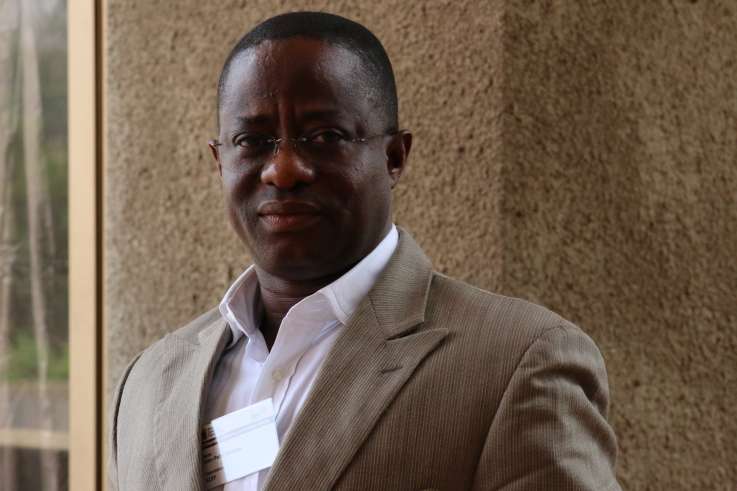The critical decision to accept the recommendations of Parliament’s Mines and Energy Committee was made through voice vote supervised by the Speaker, Prof Aaron Mike Oquaye, amidst opposition from the National Democratic Congress (NDC) minority.
Majority decision
Even the Committee of Mines and Energy was divided when it sat in chambers to consider the contract.
This was evident in the recommendation report it presented to the august house. It admitted that its conclusion was not unanimous but by a “majority decision”.
NDC-led govt Petroleum Agreement
The previous NDC-led government negotiated and executive the South Deepwater Tano Contract Area with AGM Petroleum Ghana Limited.
Under that agreement, Ghana will receive 10% royalties.
In addition, the Ghana National Petroleum Corporation (GNPC) will secure 10% free carried interest.
Also, GNPC will benefit from additional participating interest of 15%.
GNPC’s Exploration and Production Company Limited (Explorco) will also get 24%.
The existing Petroleum Agreement gives Ghana a potential 43% stake, made up of Carried and Participating Equity Interests of 25% and a Commercial Interest of 24% of the remaining 75%.
NPP-led govt renegotiated agreement
However, per the renegotiated agreement ratified by Parliament, Ghana’s 10% royalties has been maintained.
However, the free carried interest of GNPC has been increased to 15%.
Under the newly approved agreement, GNPC’s additional interest has also reduced to 3%, but GNPC’s Explorco will not take up shares in the new agreement.
Paid interest in commercial discovery
Free carried interest is 10% and participating interest is 15%, exercised after commercial discovery, and it is a paid interest.
It is wrong to simply add the two to get 25% because they have different characteristics.
Participating interest may not be exercised
This means that the participating interest may not be exercised given the financial requirement.
Ghana never exercised more than 5% of its participating interest
Ghana has never exercised more than 5% of its participating interest in any of the producing blocks.
Justification for renegotiated deal
Therefore, to reduce a paid interest which may not even be fully exercised from 15% to 3%, and increase a free interest from 10% to 15%, is about the most sensible decision any government can do.
Financial burdens for GNPC
Sources in government said the policy decision for GNPC’s Explorco not to take up the shares in the field stems from the fact that it comes with huge financial burdens.
Considering the fact that Ghana has five oil blocks up for grabs through auction, the financial requirements for GNPC to acquire the 24% stake in all of them are beyond the capacity of the state oil company.
In addition, 12 oil blocks given out under the NDC are yet to be explored, and GNPC may be required to acquire 24% stake in all of them as well.
The explanation is that when cash call is made by partners, GNPC Explorco is bound by law to find the money to pay for the shares, and in default, could lose the stake.
As a result, the ministry is of the view that government should opt for an agreement that would free resources for GNPC to rather develop the oil block allocated to it.
From a policy point of view increasing carried and participating interest to 15% was reasonable since that does not impose any financial demand on GNPC. The minority called for a review of the AGM/Aker Energy, explaining that “it is inimical to the interest of the state”. According to them, reducing the country’s stake in the oil contract from 43% to a paltry 18% was unacceptable
“The impact of the sell-off from AGM/Aker Energy is huge, a potential loss of over 250 million barrels of recoverable oil production equivalent (net to Ghana), which is almost the size of the entire Jubilee Field,” the Minority, led by its Leader and MP for Tamale South, Haruna Iddrisu, told journalists in Accra.
The Africa Centre for Energy Policy (ACEP) kicked against the acquisitions of commercial interest in petroleum blocks by agencies of state in the current state of the petroleum industry.
“It is easy to salivate over potential gains of commercial participation, but the risk of commercial participation can impact negatively on the fiscal position of the country,” it said.
ACEP said given its financial position: GNPC should be cautious about commercial commitments in petroleum blocks, especially when companies with deep pockets, such as Hess, were exiting.
Although Ghana owned petroleum resource in its jurisdiction, as long as private capital was required to make meaning of the resource, the government owed citizens a duty to be fair and firm in the interpretation of the laws and agreements.

 Parliament has approved the amended deal with AGM Petroleum for oil exploration in the Deep South West Tano oil block.
Parliament has approved the amended deal with AGM Petroleum for oil exploration in the Deep South West Tano oil block.

